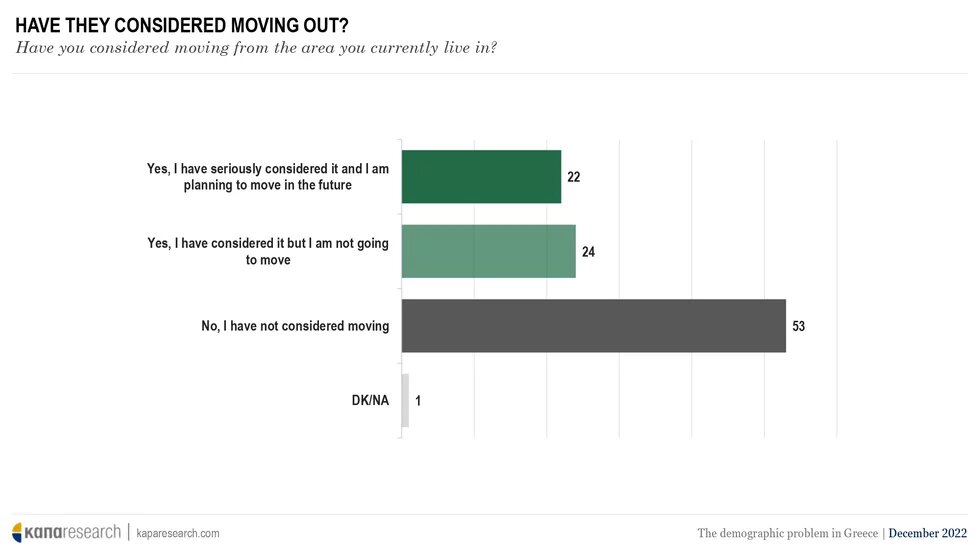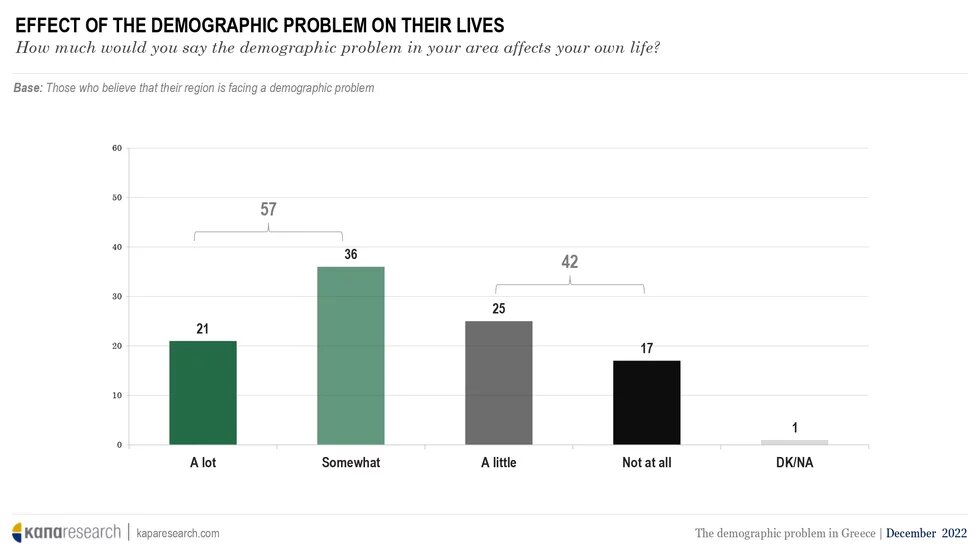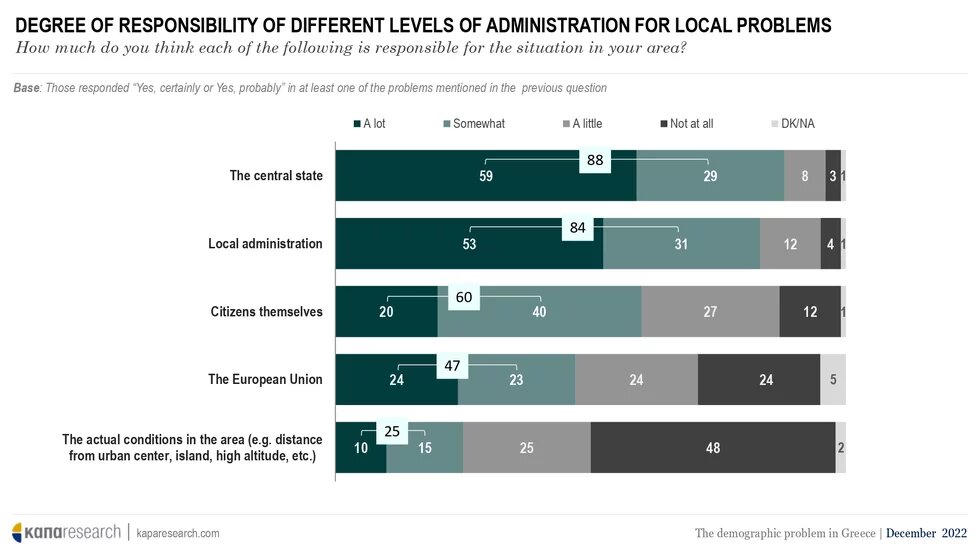
In November 2022, we collaborated with Kapa Research company to conduct a nationwide quantitative survey on the demographic problem in Greece, its root causes and the consequences on the daily lives of residents, as well as the level of government that will be called upon to provide solutions to this challenge.

The urban–rural divide in Greece is a central issue of concern to the Heinrich Böll Foundation. Through various activities, the Foundation tries to capture and decode this phenomenon, its intensity and its impact on people's daily lives, while at the same time highlighting the importance of designing a strategy for its mitigation. The population census conducted by the Hellenic Statistical Authority (ELSTAT) in 2021 came to confirm this divide. It showed a population decrease in Greece of 3.5%, while in some regions such as Western Macedonia, the decrease reaches 10%. Taking into account the future projections for the intensification of this phenomenon, we considered it appropriate to investigate the root causes and what this implies in the everyday life of the inhabitants, as well as the level of governance (European, national, regional or local) that will be called upon to provide solutions to this challenge.
In order to investigate the above, in November 2022, we collaborated with the Kapa Research company to conduct a nationwide quantitative survey, taking an enhanced sample from the four regions of interest to the Foundation (Attica, Central Macedonia, Ioannina and Crete) with a total number of 1,639 respondents.
The main conclusions from the survey are as follows:
- The vast majority of the respondents (7 out of 10) feel that the place where they live can offer them a decent living, but at the same time a fairly large proportion (22%) are considering or planning to move away from their place of residence, and this figure rises to 50% when the same question is asked about their children. For a significant proportion of those planning to move (46%), the reason is the degradation of the area of residence. Therefore, it seems that a significant wave of displacement is unfolding, which will be a concern for the country in the future.
- The problems that the vast majority of respondents are most concerned about are economic issues: high prices, financial difficulties, unemployment and poverty. The demographic problem, however, such as the ageing of the population and the tendency for young people to move away, is emerging as a fairly major national issue, which in semi-urban and rural areas is even more serious than in large urban centres. Moreover, while the problems seem to be common almost everywhere, their intensity is much greater in rural than in urban areas.
- Most people surveyed feel that the demographic issue has an impact on their own lives as well, affecting the future of the area, local economic development, quality of life and infrastructure. The elaboration of a national plan to reverse this tendency is seen as necessary by the majority.
- Finally, a consensus emerges in the answers regarding the level of administration that should be called upon to solve the problems, as the majority of respondents indicate that both the central government and local government are responsible for both creating the problems and solving them. Local authorities are seen as being able to make a substantial contribution to the development and prospects of a region and should therefore be key pillars in the design of the strategy to reverse demographic decline.
Click below to view the detailed findings report of the survey.






